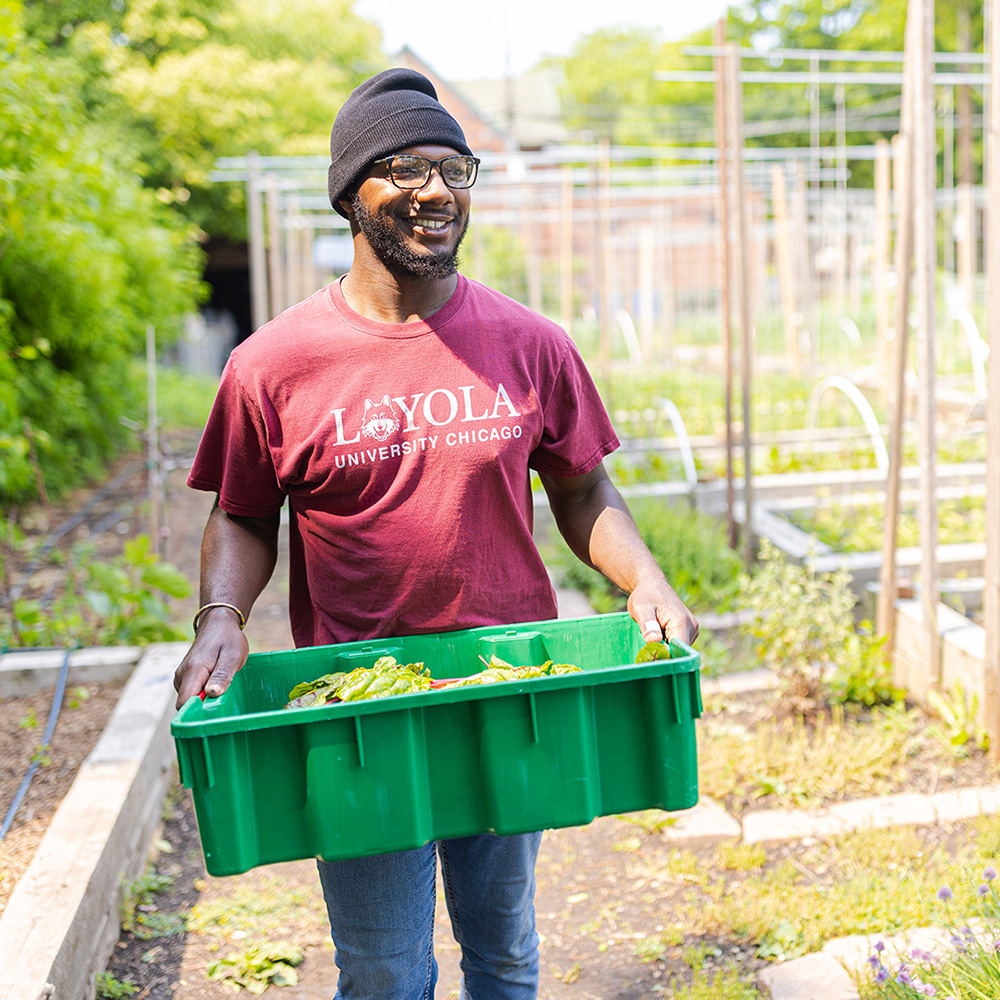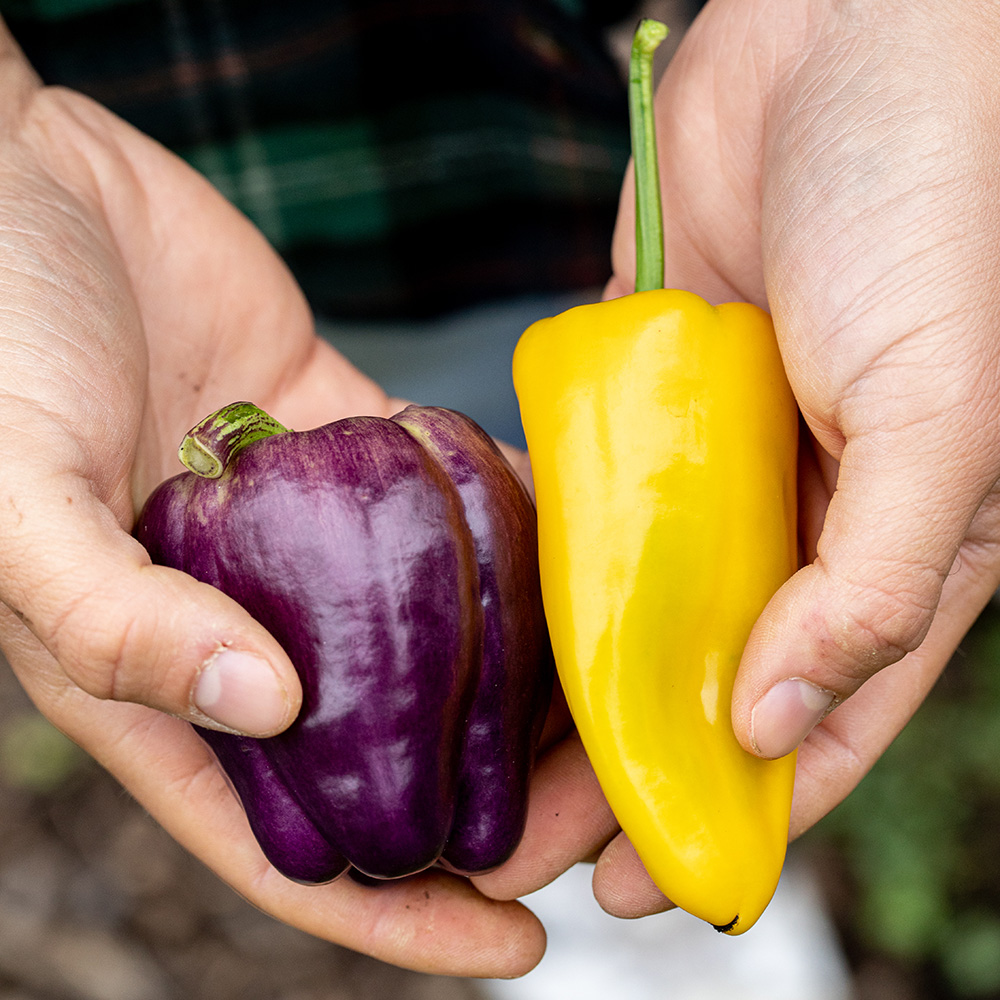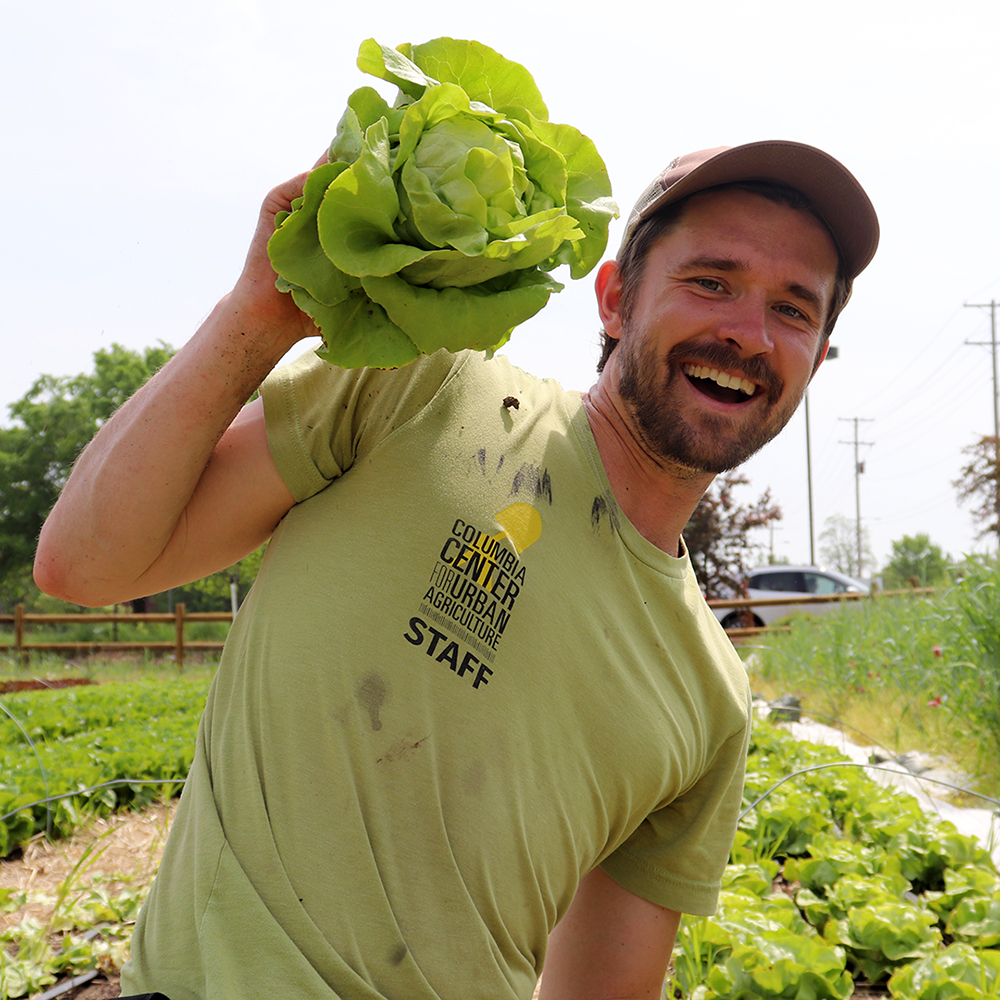
Sustainable Food Systems
Sustainable Food Systems
Modern industrial food systems maximize short-term profits while creating severe environmental and social problems. This research group collaborates with partners across different sectors and communities to promote more sustainable and equitable food systems. The group aims to advance policies and practices that ensure everyone has the right to healthy and culturally appropriate food produced through ecologically sound and sustainable methods.
We believe that everyone has the right to healthy, culturally appropriate, sustainably produced food.
Our Programs and Faculty
Related Degrees and Certifications
Faculty and Staff
- Marlene Brito-Millán - social-environmental systems, Indigenous ecologies, food sovereignty
- Megan Conway – sustainability, food waste reduction, institutional food purchasing
- Ray Dybzinski – plant ecology, agroecology, statistics and modeling
- Kevin Erickson – urban agriculture, food policy
- Sarah Ku – sustainable business management, circular economy
- Max Melstrom – environmental economics, food systems analysis
- Karen Schauwecker – sustainable agriculture education and outreach
- Tania Schusler – environmental social sciences, food justice
Facilities
- Analytical Chemistry Lab
- GIS Lab
- Loyola University Retreat and Ecology Campus
- Research Labs
- Urban Agriculture Program facilities:
- Aquaponics facilities
- Greenhouse
- Hydroponics facilities
- Mushroom production facility
- Winthrop Garden
Learn more about our research facilities.
Community Impact

Initiatives
SES Urban Agriculture Program Celebrates 10 Years
The School of Environmental Sustainability's Urban Agriculture Program is celebrating 10 years since its founding. The program provides food for local farmers' markets and restaurants and serves the community through donations to local food pantries.
More
Student Research
Students Study Food Justice in the Chicago Region
Several SES students have engaged in research that aims to contribute to a more just food system.
Learn More
Community Impact
Loyola alum helps build sustainable, equitable food systems
As the Agriculture Park director at the Columbia Center for Urban Agriculture in Columbia, Missouri, Loyola environmental science alum Tony Minnick works to create more sustainable and just food systems.
Read MoreStudent Research Opportunities
Undergraduate Research Fellowships
SES Undergraduate Research Fellowships allow students to conduct research on topics such as sustainable food production and distribution, food justice, food and agricultural policy and economics, food waste management, circularity, and food education.
Graduate Student Opportunities
Graduate students can apply to become Alfred H. Baum Family Graduate Research Scholars to study pressing questions related to food production, distribution, policy, economics, culture, circularity, food justice, food sovereignty, and resilience.
Student Internships and Jobs
The School of Environmental Sustainability provides hands-on internship opportunities for students to get deeply involved in our environmental initiatives, including our Urban Agriculture Program.
